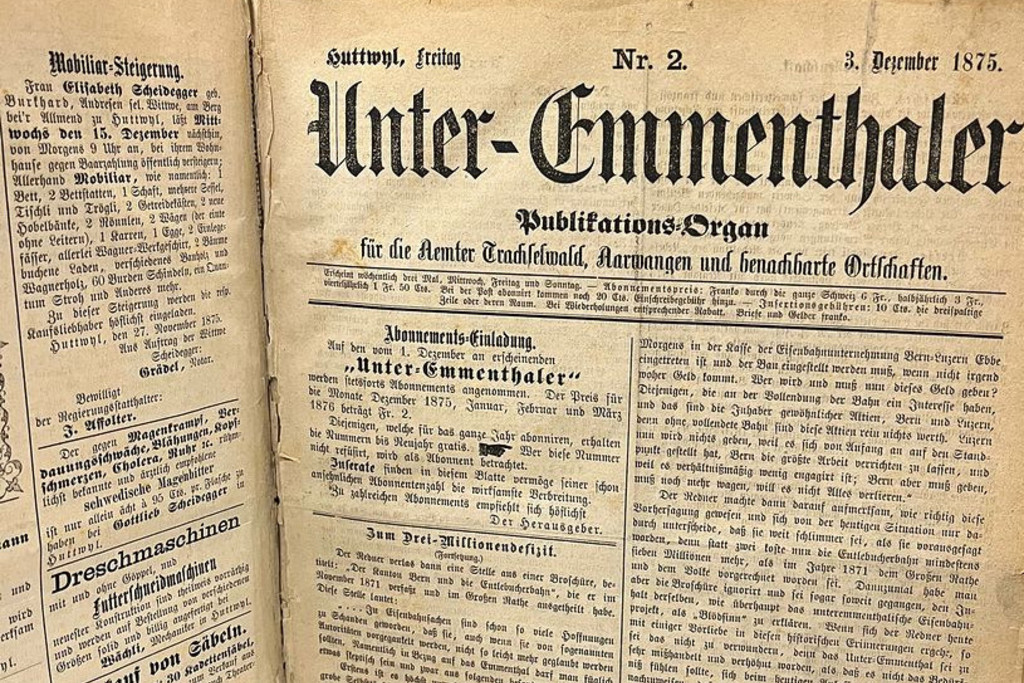Warnings from experts
The more the situation escalated, the more heated the arguments became. Epidemiologists were now not alone in advising the government to do more. Economists also joined in, saying it was a false economy for shops and restaurants to remain open if customers were falling ill. After backing the Federal Council’s decisions last spring, Switzerland’s political parties could no longer contain themselves during parliament’s winter session. The SP and Greens called for stricter measures and a more generous financial package for beleaguered businesses, whereas the FDP and SVP opposed sweeping restrictions – ensuring Swiss ski resorts stayed open, as neighbouring countries were seeking a multilateral agreement to prohibit winter sports.
The media grew more critical of the government’s “middle course”. “Minimalism on Covid, and ski resorts to open over Christmas. Has Switzerland lost its moral compass?” asked online magazine “Republik”. Even the “Neue Zürcher Zeitung” noted it would be “fatal to wait”. The newspaper generally agreed with Switzerland’s liberal and regionally varied approach to fighting the pandemic. Yet it was a mistake in hindsight for the government and cantons not to act earlier against the rise in cases, commented the broadsheet.
The limits of individual responsibility in a highly contagious pandemic; Switzerland’s sluggish system of government; uncoordinated federalism; a failure to develop a preventive strategy against the second wave; the opinions of lobbies taking precedence over science; fear of the financial consequences of a lockdown – these were reasons used in Switzerland to explain the debacle. Surprise at the government’s more relaxed approach to tackling the pandemic was expressed abroad. The World Health Organization slammed the country’s response, while renowned US magazine “Foreign Policy” headlined with “Switzerland is choosing austerity over life”. German news magazine “Der Spiegel” said Switzerland believed in its own invincibility – an attitude that had historical roots.
Pressure on the Federal Council was growing. In the middle of December, Switzerland’s large hospitals sounded the alarm. The government then stepped in, introducing stricter nationwide rules. It instructed restaurants, sports venues, museums, and leisure facilities to close, and increased its compensation fund by 1.5 billion Swiss francs. “The rate of infection has to drop, this is imperative for the entire country,” said the president of the Swiss Confederation, Simonetta Sommaruga. However, the measures lacked consistency in places and still fell short of those in other European countries. Shops remained open, as did Alpine ski resorts. Meanwhile, the World Economic Forum (WEF) announced that its annual gathering of political and business leaders in Davos would move to Singapore in 2021. Concerns about the spread of the virus in Switzerland had led the WEF to take this decision.
Up-to-date information: www.sciencetaskforce.ch
![[Translate to English:]](/fileadmin/_processed_/c/d/csm_283259_b411da83c0.jpg)














Comments
Comments :
Bitte besser recherchieren und genauere Zahlen verbreiten. Wieso gibt es nur noch Journalisten, die die politische Meinung verbreiten?
Die Restritktionen sind in keinem Verhältnis zu dem Schaden, die sie anrichten. Alte Menschen sterben einsam, Kinder werden terrorisiert und in ihrer Entwicklung gehindert etc. Psychische Krankheiten, die Sucht und andere abnormales Verhalten nehmen zu. Anstelle sich gesund zu verhalten werden wir eingesperrt wegen wenigen Menschen. Jede Krankheit muss ernst genommen werden nicht nur dieser Virus. Wir sind überaltert und so ist es nicht nur normal, dass mehr Menschen sterben. Wir können nicht ewig leben. So ab 84 Jahre sind unsere Tage gezählt. Also was soll dieser Artikel? Die Politik sollte sich nicht in unsere Gesundheit einmischen. Dazu sind wir selber verantwortlich. Sie greifen auch nicht ein wenn viele Menschen wegen resistenten Keimen in den Spitälern sterben, oder wegen Krebs, Verfettung etc. Wir sind erwachsene Menschen und können für uns selber verantwortlich sein.
Liebe Frau Brunner, herzlichsten Dank für Ihren Kommentar. Ich wollte eben auch grad einen schreiben und hab mich gefreut, dass Sie vieles geschrieben haben, dass ich auch gerne schreiben wollte. Vielen Dank, dass Sie sich die Zeit genommen haben und die verschiedenen Argumente präsentiert haben. Ich bin vollkommen mit Ihnen einverstanden und kann jedes Argument von Ihnen unterschreiben.
Ich möchte gerne folgende Fragen für Revue Suisse hinzufügen:
1. Was ist das Ziel von Revue Suisse? Sie haben doch gerade eben eine Umfrage durchgeführt und uns die Ergebnisse präsentiert. Leserinnen und Leser von Revue Suisse wünschen pertinente Informationen, aber auch emotionale Texte, wie zum Beispiel Reportagen, die uns einen kleinen Glimpse ermöglicht, was in der Schweiz zur Zeit "abgeht". Ich frage mich inwiefern dieser Artikel uns ausgewogene Informationen über den Umgang der Schweiz mit der aktuellen gesellschaftlichen Kriese gibt? Ich erwarte von Revue Suisse, dass sie unsere Perspektive einnimmt? Wir sitzen alle in Länder, die höchstwahrscheinlich noch schärfere Massnahmen hinnehmen muss als die Schweiz. Viele sind wahrscheinlich froh zu wissen, dass die Schweiz etwas mehr Pragmatismus zeigt oder sie sind zumindest neugierig zu erfahren, wie die Schweiz, als einziges Land mit einer stärkeren Beziehung zu ihren Bürgerinnen und Bürger, dank der direkten Demokratie, mit dieser gesellschaftlichen Kriese umgeht.
2. Ich schlage vor, dass Sie Frau Wenger den Artikel revidieren und versuchen den Artikel aus Sicht der Auslandschweizerinnen und Auslandschweizer zu schreiben. Was bewegt denn die Auslandschweizerinnen und Auslandschweizer in dieser Kriese? Haben Sie eine Umfrage gemacht zu den Meinungen der Auslandschweizerinnen und Auslandschweizer zur Kriese?
3. Meine junge Journalisten Kollegin Yael Debelle hat sich anfangs Januar das Leben genommen, weil sie als bereits vor der Kriese vulnerable Person, die Massnahmen nicht mehr aushalten konnte. Sie hat im Juli 2019 einen interessanten Artikel zum Thema "Zweifeln sind unangenehm, aber gesund" geschrieben. Ich bin vollkommen mit ihr einverstanden, auch Journalisten können gerne mal zugeben, dass sie auch zweifeln, ob der Artikel nicht doch etwas einfältig ist - das Gegenteil eben von zwiespältig...
Es scheint die Journalisten übernehmen nur was die Politik vorgibt. Wer die Statistiken genau anschaut und nicht nur die Zahl kommt auf ganz andere Ergebnisse. Warum werden trotz angeblich dieser überlasteten Spitälern Operationen durchgeführt, die auch auf später verschoben werden können und warum werden laufend Spitäler geschlossen? Irgendwie hinkt dies mit der Ueberlastung der Spitäler. Berücksichtigt man die Altersstatistik, d.h. es gibt mehr ältere Menschen (also eine Überalterung) so ist es nicht nur normal, dass es mehr Menschen gibt die wegen ihrem Alter sterben. Dürfen Alte Menschen nie sterben? Viele ältere Menschen können endlich gehen wenn noch zum Beispiel eine Lungenentzündung oder sonst eine Krankheit dazu kommt. Dies ist der normale Werdegang des Menschen. Eigentlich erwarte ich von den Journalisten viel genauere Recherchen und nicht all die angstmachenden Informationen. Es ist in keinem Verhältnis all diese Restriktionen gegenüber all den gesunden Menschen, die nun psyhisch krank werden. Ganz zu schweigen von den Kindern, die so in ihrer Entwicklung gehindert werden. Wie sollen die unser Land später führen?